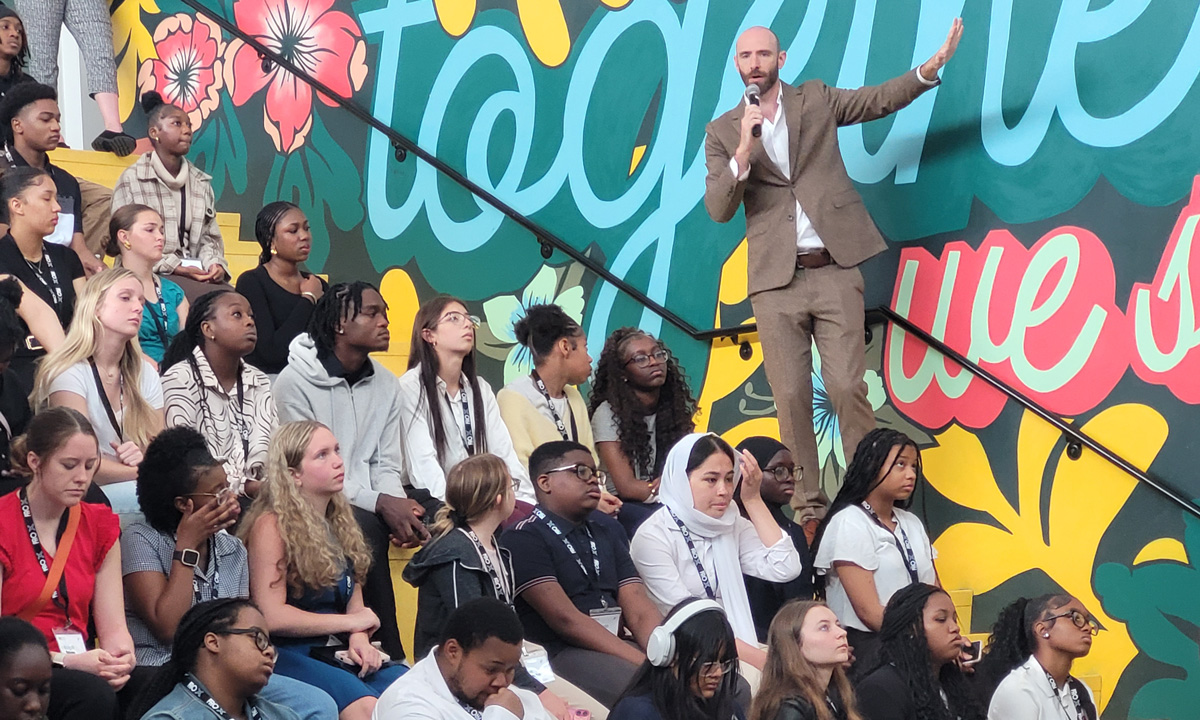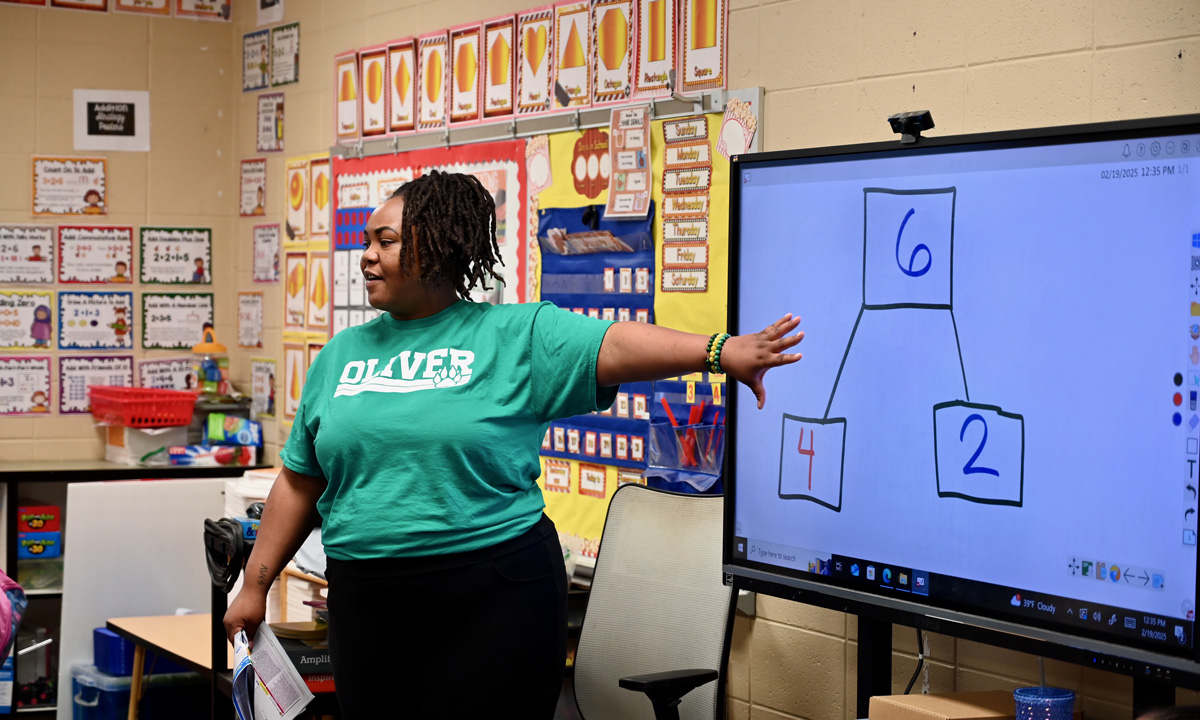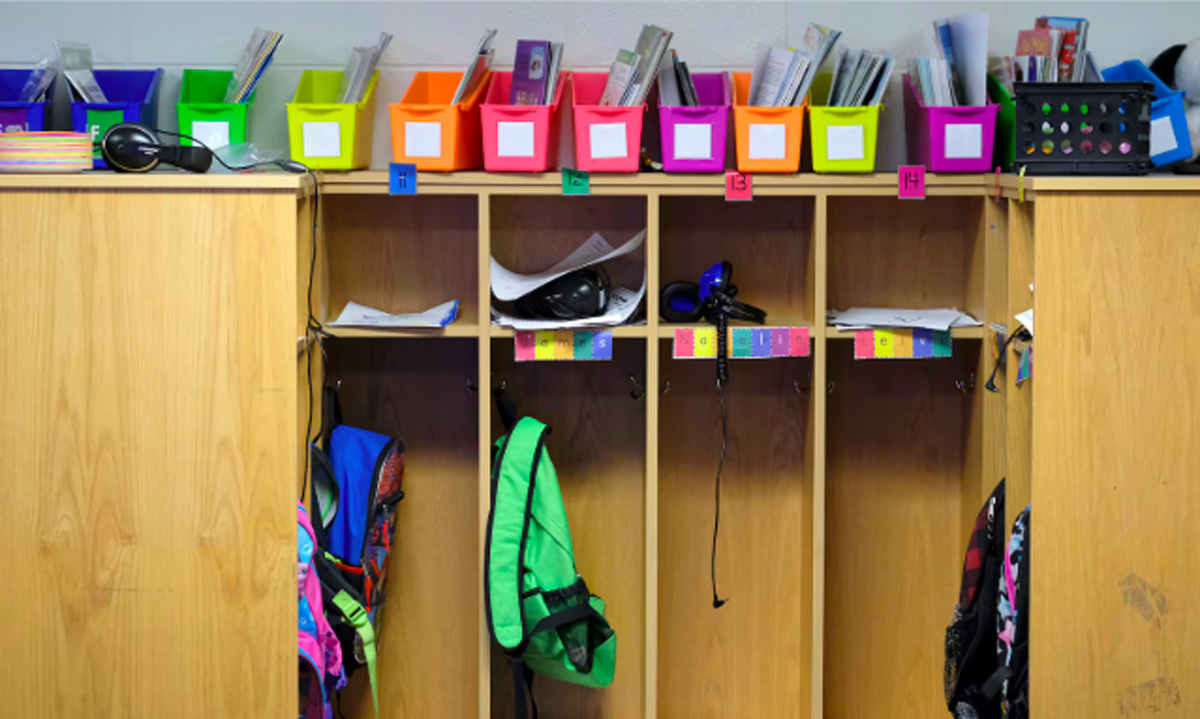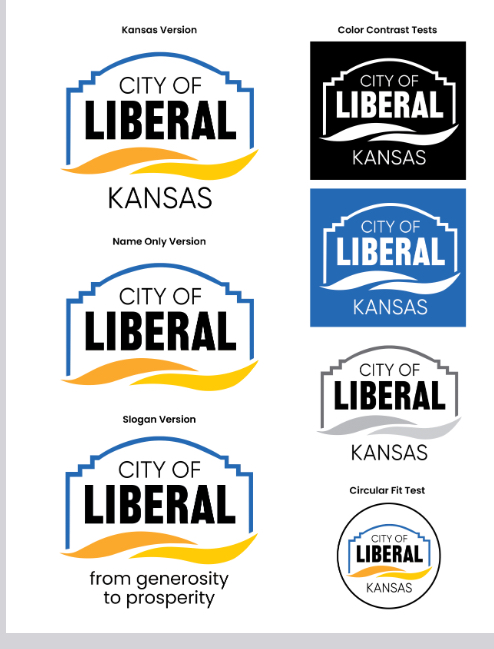Observing the lines of high school kids in a Kansas City school cafeteria, Izsie Robinson began outlining the requirements for their forthcoming summer internships.
At the ProX internship program’s early June debut, Robinson, a business owner, reminded the kids, “This isn’t school.” This internship is for the summer. Each of you has a boss.
“You can’t just come in late or skip a day,” Robinson remarked. You should contact your employer if something comes up that interferes. You cannot spend your entire day on your phone. There will be dress rules and cell phone policies for each employer to learn. It is also necessary to input work hours online.
For some of the 660 new interns from the Kansas City area—some of whom are as young as 15 and for whom this internship is their first employment ever—it’s a lot. “Working with adults can be intimidating because many have never had a boss or a work schedule before,” Robinson and program head Solissa Franco-McKay said.
In an effort to address a problem that frequently turns off businesses and trips up high school interns everywhere there is a misalignment between student and company expectations, ProX, short for professional experience, has developed one of the most robust and organized support networks for interns in the nation.
Every student has a mentor who works for the company and a coach who is employed by the program; they meet once a week. Additionally, ProX dedicates every Monday of the internship to professional development, working on so-called soft skills like communication, cooperation, and punctuality—skills that many teenagers lack but that employers value.
For you, this is the beginning of a journey, Franco-McKay said the pupils. This is about expanding your network, developing your abilities, and simply conducting some research. Your coaches encourage, mentor, and assist you during your journey.
It’s okay if you make a mistake. Isn’t that what it’s about? She emphasized. And we’re going to work together on it.
However, there is a significant disadvantage to offering all the training and assistance to both students and businesses: It restricts the number of students the program can serve.
Most of the 3,000 kids who applied for slots this summer had to be turned away, according to ProX. Since its inception, the program’s funding has increased from $1 million to $4 million. To accommodate every kid, more coaches and other staff would have to be hired.
Launched by the Ewing Marion Kauffman Foundation in 2021, the ProX program offers high school students a unique opportunity to test drive a potential career path through paid summer internships lasting five weeks each summer.
High school students rarely have internships, despite the fact that college students frequently do. Approximately 5% of high school students have the opportunity to participate in an internship or a more advanced apprenticeship during the academic year or during the summer.
This is partially due to the fact that American businesses do not often trust high school students with business activities, in contrast to those in Europe where internships and apprenticeships are popular.
Companies cited the effort required to choose and oversee qualified interns as one of the largest obstacles to hiring high school kids, according to a 2024 poll conducted by American Student Assistance, a nonprofit organization that supports professional options for students.
Many employers rely on independent organizations like ProX to handle internships, which include hiring interns, teaching them soft skills, and ensuring they are capable of handling the workplace. Employing students for the summer becomes easier for businesses the more such agencies take on for the enterprises.
Making this as plug-and-play for the employer as feasible was the main goal when we were first established, according to Franco-McKay. We want to be perceived by the employer as a front entrance.
“You can come to the ProX program and we’ll take care of all the paperwork if you want to interact with students here in Kansas City,” she continued. We employ the interns. They receive the stipend from us. We keep tabs on their hours. All the employer really needs to do is coach them and provide them a great experience.
ProX is not the only organization—often referred to as an intermediary—that provides training and employs interns to assist businesses. The city’s substantial summer jobs program is run by the nonprofit Boston Public Industry Council on behalf of the city and school district. According to Executive Director Neil Sullivan, companies rely on PIC staff to meet with students and attest to their readiness for work, even though many students receive instruction in fundamental soft skills in school.
Another is the high school internship program offered by Genesys Works in eight locations, including Houston, Chicago, New York City, and Washington, D.C. Additionally, it prioritizes training soft skills just as much as ProX. Students are evaluated on a variety of skills throughout the summer before their internships, including initiative, problem-solving, teamwork, communication, time and project management, and work ethic. Only if they receive high scores are they sent to internships.
According to Mandy Hildrenbrand, chief services officer at Genesys Works, it’s intended to be comprehensive so that students arrive at their internship with the fundamental abilities they require. They can then learn more specialized skills for their internship.
Since its inception by the Ewing Marion Kauffman Foundation, which bears the name of the pharmaceutical tycoon most known for having owned the Kansas City Royals baseball team in the past, the ProX internship program has made training a crucial component of the internships.
A full-time job is not what the internship is. For five weeks, it provides a stipend of $1,250 for 25 hours a week, which is less than the hourly wage for some retail and fast food positions. However, the internships are not merely a means of making money during the summer; they are intended to give students a taste of possible occupations and practice navigating the job application and hiring process.
ProX also places a high priority on recruiting students from low-income areas, so it provides them with rides to work via zTrip, a local ridesharing service, or money to purchase work uniforms if necessary.
According to Franco-McKay, “our program is really focused on breaking down any barriers that may exist to student participation.”
ProX makes significant investments in coaches and training for this reason. Every Monday, interns spend a half-day at the city’s Ewing Marion Kauffman School, where they study about a new skill every week: leadership, teamwork, communication, critical thinking, and self-awareness.
Additionally, ProX employs educators like Kristi Larison, a teacher at Liberty North High School in a nearby suburb, to serve as a coach and point of contact between interns and firms, while each of the 95 companies in the program assigns an employee mentor to each intern. This summer, Larison will be visiting 19 students at their workplaces once a week to follow up with them and talk about their weekly and summer goals.
“We’re going to sort of pull them through because we know kids and we know job sites,” she said. Last year, a lot of my students relied on me for help with their queries since they were either too shy or didn’t yet have the communication skills to interact with the company. In a sense, I served as a bridge to teach them how to accomplish that independently. That is crucial, in my opinion.
Another coach, Don Simon, who teaches at Smithville High School in the suburbs, said he thinks the coaching benefits students who might not have had a job before. Employers are also reassured that they are not the only ones helping pupils when they have coaches.
Many of our employers have worked on college internships, but not high school internships, Simon added. For many employers, it’s a deal-breaker that the children have a coach with them. “All right, let’s do this,” they say.
Some students, such as Park Hill High School incoming senior Bradley Epps, are so focused on their objectives that they would prefer to work Mondays rather than participate in workplace training. Even yet, as a future architect, he is thrilled to be an intern at the Kansas City Design Center, which focuses on architecture and urban planning.
He stated, “I believe it will provide me with some experience.” Additionally, it will allow me to see for myself if I had any doubts.
Others like the training as well as the opportunity to try out a career.
After graduating from Blue Valley High School, which is located south of the city, Trisha Rastogi aspires to work as a cancer researcher. She claimed that the opportunity to gain practical job experience at Children’s Mercy Hospital, especially in the public health division, is fantastic.
She stated, “I want to become a doctor, which is healthcare at a more individual level.” But I also like that I m doing this internship because it gives me exposure to healthcare at a community level too.









